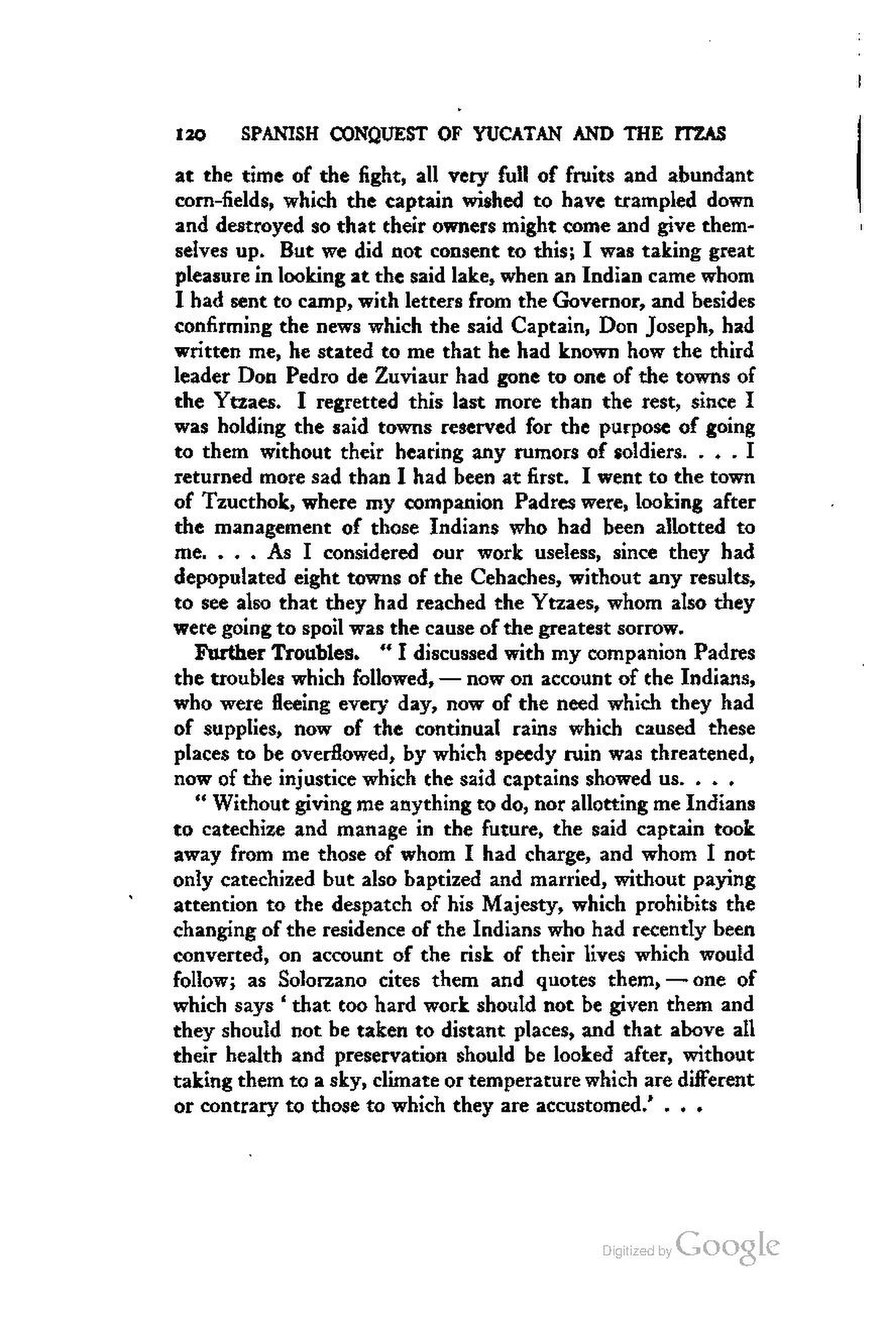at the time of the fight, all very full of fruits and abundant corn-fields, which the captain wished to have trampled down and destroyed so that their owners might come and give themselves up. But we did not consent to this; I was taking great pleasure in looking at the said lake, when an Indian came whom I had sent to camp, with letters from the Governor, and besides confirming the news which the said Captain, Don Joseph, had written me, he stated to me that he had known how the third leader Don Pedro de Zuviaur had gone to one of the towns of the Ytzaes. I regretted this last more than the rest, since I was holding the said towns reserved for the purpose of going to them without their hearing any rumors of soldiers.... I returned more sad than I had been at first. I went to the town of Tzucthok, where my companion Padres were, looking after the management of those Indians who had been allotted to me.... As I considered our work useless, since they had depopulated eight towns of the Cehaches, without any results, to see also that they had reached the Ytzaes, whom also they were going to spoil was the cause of the greatest sorrow.
Further Troubles. “I discussed with my companion Padres the troubles which followed, — now on account of the Indians, who were fleeing every day, now of the need which they had of supplies, now of the continual rains which caused these places to be overflowed, by which speedy ruin was threatened, now of the injustice which the said captains showed us.... “Without giving me anything to do, nor allotting me Indians to catechize and manage in the future, the said captain took away from me those of whom I had charge, and whom I not only catechized but also baptized and married, without paying attention to the despatch of his Majesty, which prohibits the changing of the residence of the Indians who had recently been converted, on account of the risk of their lives which would follow; as Solorzano cites them and quotes them, — one of which says 'that too hard work should not be given them and they should not be taken to distant places, and that above all their health and preservation should be looked after, without taking them to a sky, climate or temperature which are different or contrary to those to which they are accustomed.'...
